 W
WParliamentary elections were held in Greece on 25 February 1872. Supporters of Alexandros Koumoundouros and Dimitrios Voulgaris both won 65 seats of the 190 seats. Voulgaris remained Prime Minister until 20 July, when he was replaced by Epameinondas Deligiorgis.
 W
WParliamentary elections were held in Greece on 27 January 1873. The United Opposition won 95 of the 190 seats. Epameinondas Deligiorgis remained Prime Minister.
 W
WParliamentary elections were held in Greece in June 1874. The United Opposition won 96 of the 190 seats. Dimitrios Voulgaris remained Prime Minister.
 W
WParliamentary elections were held in Greece on 23 September 1879. Supporters of Alexandros Koumoundouros and Theodoros Deligiannis emerged as the largest bloc in Parliament, with 100 of the 207 seats. Koumoundouros remained Prime Minister until 22 March the following year.
 W
WParliamentary elections were held in Greece on 20 December 1881. Supporters of Charilaos Trikoupis emerged as the largest bloc in Parliament, with 125 of the 245 seats. Trikoupis became Prime Minister on 15 March 1883.
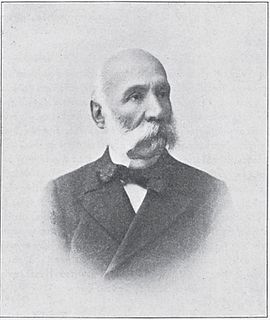 W
WParliamentary elections were held in Greece on 7 April 1885. Supporters of Theodoros Deligiannis emerged as the largest bloc in Parliament, with 170 of the 245 seats. Deligiannis became Prime Minister on 1 May.
 W
WParliamentary elections were held in Greece on 4 January 1887. Supporters of Charilaos Trikoupis emerged as the largest bloc in Parliament, with 90 of the 150 seats. Following the election Trikoupis remained Prime Minister, having assumed office on 21 May 1886.
 W
WParliamentary elections were held in Greece on 14 October 1890. Supporters of Theodoros Deligiannis emerged as the largest bloc in Parliament, with 100 of the 150 seats. Deligiannis became Prime Minister for the second time on 5 November.
 W
WParliamentary elections were held in Greece on 3 May 1892. Supporters of Charilaos Trikoupis emerged as the largest bloc in Parliament, with 160 of the 207 seats. Trikoupis became Prime Minister for the sixth time on 22 June.
 W
WParliamentary elections were held in Greece on 16 April 1895. Supporters of Theodoros Deligiannis emerged as the largest bloc in Parliament, with 150 of the 207 seats. Deligiannis became Prime Minister for the third time the 11 June.
 W
WParliamentary elections were held in Greece on 7 February 1899. Although Charilaos Trikoupis died in 1896, his supporters emerged as the largest bloc in Parliament, with 110 of the 235 seats, Georgios Theotokis, his successor as a leader of the New Party became Prime Minister after the election.
 W
WParliamentary elections were held in Greece on 17 November 1902. Supporters of Theodoros Deligiannis emerged as the largest bloc in Parliament, with 110 of the 235 seats. Deligiannis became Prime Minister for the fourth time on 6 December.
 W
WParliamentary elections were held in Greece on 20 February 1905. Supporters of Theodoros Deligiannis emerged as the largest bloc in Parliament, with 144 of the 235 seats. Deligiannis remained Prime Minister after the election, but he was assassinated on 13 June and was succeeded by Dimitrios Rallis.
 W
WParliamentary elections were held in Greece on 26 March 1906. Supporters of Georgios Theotokis emerged as the largest bloc in Parliament, with between 112 and 114 of the 177 seats. Theotokis remained Prime Minister after the election, having originally assumed office on 21 December 1905.
 W
WParliamentary elections were held in Greece on 21 August [O.S. 8 August] 1910. The United Parties won 211 of the 362 seats. Eleftherios Venizelos became Prime Minister on 18 October, and early elections were held in November.
 W
WParliamentary elections were held in Greece on 11 December [O.S. 28 November] 1910, following elections in August. The Liberal Party won 307 of the 362 seats. Eleftherios Venizelos remained Prime Minister, having assumed office on 18 October.
 W
WParliamentary elections were held in Greece on 24 March [O.S. 11 March] 1912. The Liberal Party won 146 of the 181 seats. Eleftherios Venizelos remained Prime Minister, having assumed office on 18 October 1910.
 W
WParliamentary elections were held in Greece on 13 June [O.S. 31 May] 1915. The result was a landslide victory for Eleftherios Venizelos and his Liberal Party, which won 187 of the 316 seats in Parliament. Venizelos claimed that his victory was proof that the Greek people approved of his policy, favoring the Allies of World War I.
 W
WParliamentary elections were held in Greece on 19 December [O.S. 6 December] 1915. They were boycotted by Eleftherios Venizelos and his party, the Liberal Party, as unconstitutional, a result of a confrontation with King Constantine I over the country's participation in World War I. Venizelos considered Greece as a close and loyal ally of the United Kingdom of Great Britain and Ireland and the French Third Republic, while Constantine I, who was affiliated with the House of Hohenzollern, favored neutrality.
 W
WParliamentary elections were held in Greece on Sunday, 14 November 1920, or 1 November 1920 old style. They were possibly the most crucial elections in the modern history of Greece, influencing not only the few years afterwards, including the Greek defeat by Kemal Atatürk's reformed Turkish Land Forces in 1922, but setting the stage for Greece's political landscape for most of the rest of the 20th century. It had been nearly five years since the last elections, a period during which all democratic procedures were suspended due to the National Schism, when Prime Minister Eleftherios Venizelos announced that elections would take place on 25 October. However, after the unexpected death of King Alexander, who had assumed the throne after the exile of his father, King Constantine I, the elections were postponed until 14 November.
 W
WParliamentary elections were held in Greece on 16 December 1923. The result was a victory for the Liberal Party, which won 250 of the 398 seats.
 W
WParliamentary elections were held in Greece on 7 November 1926. The Liberal Union emerged as the largest faction in Parliament with 108 of the 286 seats. The composition of the new parliament meant that the parties and factions had to work together to form a viable parliamentary government. On Kafandaris' initiative, negotiations began among the main parties, leading to the swearing-in on the 4 December of a government under the premiership of Alexandros Zaimis who was not a member of parliament. The coalition consisted of the Liberal Union, the Democratic Union, the People's Party and the Freethinkers' Party. This government came to be known as the "Ecumenical government".
 W
WParliamentary elections were held in Greece on 19 August 1928. The result was a victory for the Liberal Party, which won 178 of the 250 seats.
 W
WParliamentary elections were held in Greece on 25 September 1932. All 254 seats in the Lower House of the Greek Parliament, the Vouli, were elected, as well as one-third of the seats in the Senate. The outcome was an ambivalent result for the two biggest parties, the Liberal Party of Eleftherios Venizelos and the People's Party. The People's Party received a plurality of votes in the Lower House elections, but won fewer seats than the Liberal Party. The Liberals also won the most seats in the Senate.
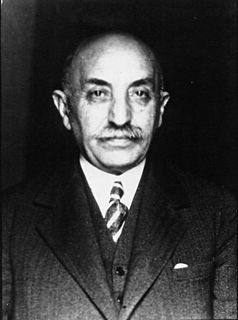 W
WParliamentary elections were held in Greece on 5 March 1933. The pro-monarchist People's Party emerged as the largest party, winning 118 of the 248 seats in Parliament, ending the predominance of Eleftherios Venizelos' Liberal Party. The results triggered an attempted coup by Venizelist officers. A military emergency government under Alexandros Othonaios was instituted which suppressed the revolt, and was succeeded by a People's Party cabinet under Panagis Tsaldaris on 10 March.
 W
WParliamentary elections were held in Greece on 9 June 1935. The People's Party-National Radical Party alliance, which won 287 of the 300 seats in Parliament.
 W
WParliamentary elections were held in Greece on 26 January 1936. The Liberal Party emerged as the largest party in Parliament, winning 126 of the 300 seats.
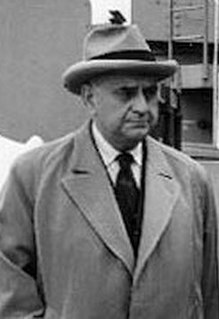 W
WParliamentary elections were held in Greece on 31 March 1946. The result was a victory for the United Alignment of Nationalists, an alliance that included the People's Party, the National Liberal Party, and the Reform Party, which won 206 of the 354 seats in Parliament. As a result Konstantinos Tsaldaris became Prime Minister leading a right-wing coalition. Nonetheless, he soon decided to resign in favor of Themistoklis Sophoulis, who led a government of national unity during the entire second phase of the civil war (1946–1949). One of the priorities of the new government was the proclamation of a plebiscite for the restoration of the Greek monarchy.
 W
WParliamentary elections were held in Greece on 5 March 1950. The People's Party emerged as the largest party in Parliament, winning 62 of the 250 seats.
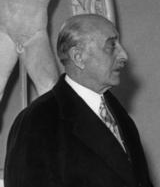 W
WParliamentary elections were held in Greece on 9 September 1951. They resulted in an ambivalent outcome, consisting a narrow and pyrrhic, as proven later, victory for the ruling center-liberal parties of Sophoklis Venizelos and Nikolaos Plastiras.
 W
WParliamentary elections were held in Greece on 16 November 1952. They resulted in a victory for General Alexander Papagos and the party he had founded the previous year, the Greek Rally party. Papagos won by unifying most of the conservative forces under his leadership, and taking advantage of a weakened centre. The electorate of Konstantinos Tsaldaris' People's Party, the leading conservative party in the 1950 elections, shrank to only 1%.
 W
WParliamentary elections were held in Greece on 19 February 1956. The result was a victory for Constantine Karamanlis and his National Radical Union party by securing the electoral vote despite trailing in the popular vote. It was the first general election in Greece in which women had the right to vote, although women had first voted in a by-election in Thessaloniki Prefecture in 1953 in which the first female MP was elected.
 W
WParliamentary elections were held in Greece on 11 May 1958. The result was a second consecutive victory for Constantine Karamanlis and his National Radical Union party, which won 171 of the 300 seats in Parliament.
 W
WParliamentary elections were held in Greece on 29 October 1961 to elect members of the Hellenic Parliament. The result was a third consecutive victory for Constantine Karamanlis and his National Radical Union (ERE) party, which won 176 of the 300 seats.
 W
WParliamentary elections were held in Greece on 3 November 1963. They resulted in a narrow victory for the Center Union of Georgios Papandreou after three consecutive victories of Konstantinos Karamanlis and his National Radical Union party and after 11 years, during which the conservative parties ruled Greece.
 W
WParliamentary elections were held in Greece on 16 February 1964. They resulted in a clear victory for Georgios Papandreou and his Center Union (EK) party. Papandreou subsequently formed the 37th government since the end of World War II.
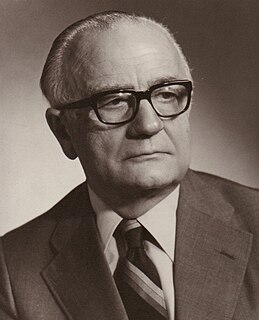 W
WParliamentary elections were held in Greece on 17 November 1974. They were the first after the end of the Greek military junta of 1967–1974 and took place during the metapolitefsi era. The winner was Konstantinos Karamanlis and his newly formed conservative party, ND. Karamanlis had already formed a government of national unity just after the fall of the dictatorship. The second biggest party was the centrist Center Union - New Forces. Third power in the Parliament became the newly formed PASOK, a radical socialist party led by Andreas Papandreou, son of the former prime minister Georgios Papandreou.
 W
WParliamentary elections were held in Greece on 20 November 1977. After Prime Minister Constantine Karamanlis called for early elections, his New Democracy party suffered a significant loss of power. However, Karamanlis managed to secure an absolute majority in the Parliament. The big surprise was the success of PASOK, whose socialistic rhetoric remained radical. Because of PASOK's success, the Centrists led again by Georgios Mavros lost half of their power. As a result, Andreas Papandreou, PASOK's leader, became a prominent figure in Greek politics. The Communists and the Nationalists managed to amplify their support.
 W
WParliamentary elections were held in Greece on Sunday, 18 October 1981. The Panhellenic Socialist Movement (PASOK), led by Andreas Papandreou, faced New Democracy, led by Georgios Rallis. Papandreou achieved a landslide and PASOK formed the first socialist government in the history of Greece.
 W
WParliamentary elections were held in Greece on 3 June 1985. The ruling Panhellenic Socialist Movement (PASOK) of Andreas Papandreou, was re-elected, defeating the conservative New Democracy party of Constantine Mitsotakis.
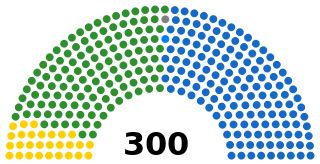 W
WParliamentary elections were held in Greece on 18 June 1989. The liberal-conservative New Democracy party of Constantine Mitsotakis defeated the Panhellenic Socialist Movement (PASOK) of Andreas Papandreou. However, New Democracy could not form a government, since its 5% lead in the popular vote was not enough to reach a majority because of the proportional representation system voted into electoral law by the previous PASOK government.
 W
WEarly parliamentary elections were held in Greece on 5 November 1989. The liberal-conservative New Democracy party of Constantine Mitsotakis emerged as the largest party in Parliament, defeating the Panhellenic Socialist Movement (PASOK) of Andreas Papandreou. However, as in June 1989, Mitsotakis was unable to form a government since his party had failed to win a majority of seats.
 W
WEarly parliamentary elections were held in Greece on 8 April 1990. The conservative New Democracy party of Constantine Mitsotakis, was elected, defeating the Panhellenic Socialist Movement (PASOK) of Andreas Papandreou. In order to be able to command a majority of 151 in the 300-seat Parliament, New Democracy had to secure the support of Theodoros Katsikis, Democratic Renewal's sole MP. Shortly after Mitsotakis was given a confidence vote, Supreme Special Court, after a mistake in seat calculation was detected, gave coalition a 152nd seat.
 W
WParliamentary elections were held in Greece on 10 October 1993. The Panhellenic Socialist Movement (PASOK) of Andreas Papandreou, was elected with 170 of the 300 seats, defeating the conservative New Democracy party of Constantine Mitsotakis.
 W
WParliamentary elections were held in Greece on 22 September 1996. The ruling Panhellenic Socialist Movement (PASOK) of Costas Simitis was re-elected, defeating the liberal-conservative New Democracy party of Miltiadis Evert.
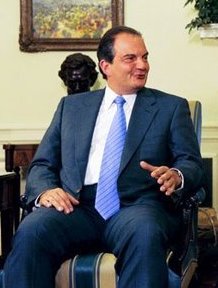 W
WParliamentary elections were held in Greece on 9 April 2000. The ruling Panhellenic Socialist Movement (PASOK) of Prime Minister Costas Simitis was narrowly re-elected, defeating the conservative New Democracy party. Simitis formed his third cabinet.
 W
WParliamentary elections were held in Greece on 7 March 2004. The New Democracy Party of Kostas Karamanlis won the elections, ending eleven years of rule by PASOK. PASOK was led into the elections by George Papandreou, who succeeded retiring Prime Minister Costas Simitis as party leader in February.
 W
WParliamentary elections were held in Greece on Sunday, September 16, 2007, to elect the 300 members of the Hellenic Parliament. The leading party for a second term was New Democracy under the leadership of Kostas Karamanlis with 41.83%, followed by George Papandreou and Panhellenic Socialist Movement (PASOK) with 38.10%. New Democracy managed to secure an absolute but narrow majority of 152 out of 300 parliament seats. The populist Popular Orthodox Rally entered the parliament for the first time with 10 seats, while the parties of the left, the Communist Party of Greece (KKE) and the Coalition of the Radical Left (SYRIZA), enjoyed a significant increase in their votes. KKE got 8.15% of the votes and secured 22 parliament seats and SYRIZA got 5.04% of the votes (+1.78%) and 14 seats.
 W
WEarly parliamentary elections were held in Greece on 4 October 2009. Elections were not required until September 2011, but on 2 September 2009 Prime Minister Kostas Karamanlis of New Democracy announced that he would request President Karolos Papoulias dissolve Parliament and call elections. Parliament was dissolved on 9 September.
 W
WThe May 2012 Greek legislative election was held in Greece on Sunday, 6 May, to elect all 300 members to the Hellenic Parliament. Under the constitution, it was due to be held in late 2013, four years after the previous election; however, an early election was agreed under the November 2011 agreement to form a coalition government, formed with a remit to ratify and implement decisions taken with other Eurozone countries and the International Monetary Fund (IMF) a month earlier.
 W
WThe June 2012 Greek legislative election was held in Greece on Sunday, 17 June, to elect all 300 members to the Hellenic Parliament in accordance with the constitution, after all attempts to form a new government failed following the May election. If all attempts to form a new government fails, the constitution directs the president to dissolve a newly elected parliament, and then to call for new parliamentary elections within 30 days of the dissolution. The president announced at 16 May the date for the new election, and signed the formal decree to dissolve the parliament and call for the election at 19 May.
 W
WThe January 2015 Greek legislative election was held in Greece on Sunday, 25 January, to elect all 300 members to the Hellenic Parliament in accordance with the constitution. The election was held earlier than scheduled due to the failure of the Greek parliament to elect a new president on 29 December 2014.
 W
WThe September 2015 Greek legislative election was held in Greece on Sunday, 20 September, following Prime Minister Alexis Tsipras' announced resignation on 20 August. At stake were all 300 seats in the Hellenic Parliament. This was a snap election, the sixth since 2007, since new elections were not due until February 2019.
 W
WThe 2019 Greek legislative election was held on 7 July 2019. All 300 seats in the Hellenic Parliament were contested.